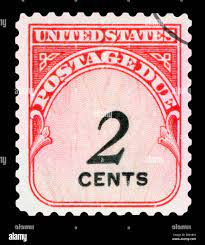On September 4, 2002, a television phenomenon was born as the first season of American Idol premiered on the Fox network. This groundbreaking singing competition not only captivated audiences but also launched the careers of aspiring musicians and forever changed the landscape of reality television.
American Idol, based on the British show Pop Idol, aimed to discover the next big music star through a nationwide talent search. The show featured a panel of judges, including music producer Randy Jackson, singer Paula Abdul, and the sharp-tongued Simon Cowell. Aspiring singers from across the United States auditioned in front of the judges, hoping to secure a coveted spot in the competition.
The first season of American Idol introduced viewers to a diverse range of talented performers. From soulful R&B singers to powerful rock vocalists and country crooners, the show showcased the incredible talent that existed within the American music landscape.
Kelly Clarkson, a 20-year-old from Burleson, Texas, emerged as the winner of the inaugural season. Her powerful voice, magnetic stage presence, and genuine personality won over both the judges and the voting audience. Clarkson's victory catapulted her into stardom, and she went on to release her debut album, "Thankful," which achieved commercial success and established her as a force to be reckoned with in the music industry.
The success of American Idol did not end with Kelly Clarkson's victory. The show became a cultural phenomenon, attracting millions of viewers each week and launching the careers of numerous contestants. From Carrie Underwood and Jennifer Hudson to Adam Lambert and Chris Daughtry, American Idol provided a platform for aspiring artists to showcase their talent and gain exposure to a wide audience.
Beyond its impact on individual careers, American Idol also had a profound influence on the music industry as a whole. The show revitalized interest in live singing competitions and sparked a wave of similar shows around the world. It also introduced a new model for talent discovery, where audience participation and voting played a significant role in determining the winner.
American Idol's success was not limited to the television screen. The show generated massive record sales, concert tours, and merchandise, turning its winners and finalists into household names. It also paved the way for other reality competition shows, such as The Voice and America's Got Talent, which continue to dominate the television landscape.
American Idol's impact went beyond the music industry. It served as a platform for diverse voices and stories, showcasing the power of dreams, hard work, and perseverance. The show inspired viewers and aspiring musicians to pursue their passions, no matter their background or circumstances.
The first season of American Idol, which premiered on September 4, 2002, marked the beginning of a cultural phenomenon that would shape the entertainment industry for years to come. It introduced the world to the power of reality television, the allure of talent competitions, and the undeniable talent of aspiring musicians. American Idol became a cultural touchstone, launching careers, creating stars, and inspiring millions to chase their dreams.






